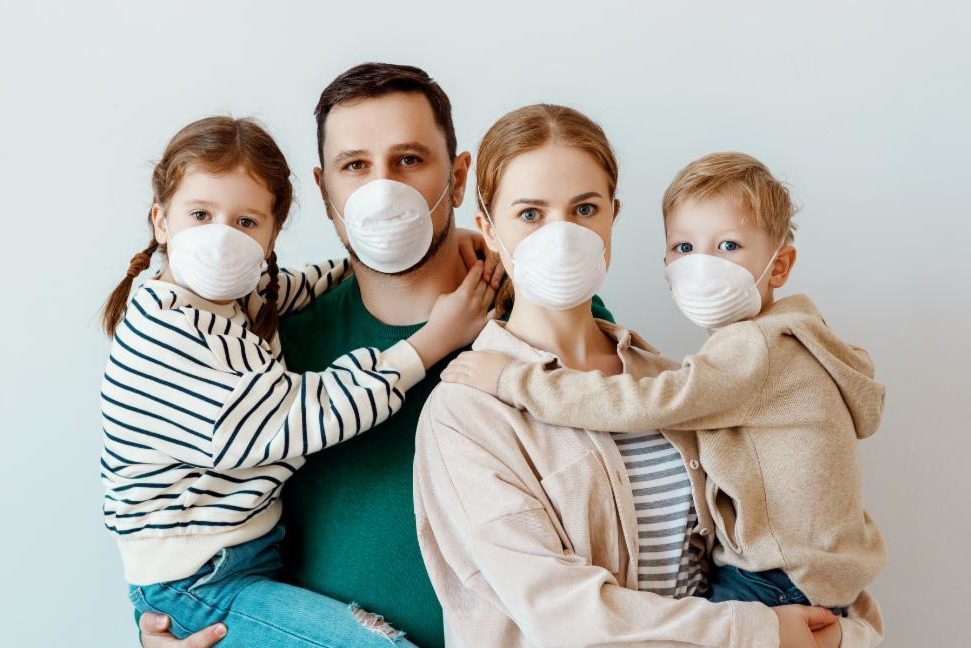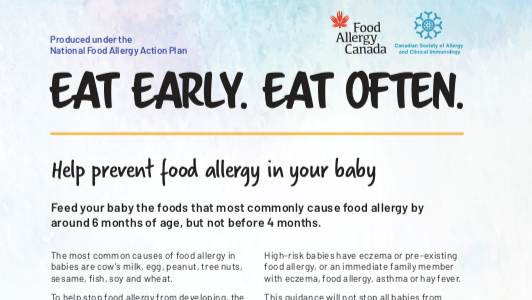Register for our new youth webinar next week on the physical and emotional sides of severe allergic reactions and get answers to your questions on food allergy and COVID-19 and preparing for back-to-school.
Next week: Youth webinar on the physical and emotional sides of severe allergic reactions

A severe allergic reaction (anaphylaxis) can bring on different physical symptoms and emotions. Join us next week on August 19th at 12 pm EDT for an insightful and informative webinar with Kyle Dine, food allergy educator, Canadian allergist Dr. Julia Upton, and a panel of youth/young adults with food allergy who will share their reaction stories and lessons learned.
What the webinar is about:

The webinar will begin with Dr. Upton providing an overview of what happens to your body during an allergic reaction, the signs and symptoms of anaphylaxis, and the emergency treatment. The youth panel will then share first-hand reaction experiences, giving insights on treating allergic reactions and how they overcame any barriers in using epinephrine auto-injectors. This will be an interactive webinar where the majority of the time will be spent answering your questions.
With this webinar, youth will be empowered to better understand the signs and symptoms of anaphylaxis, when to use epinephrine, and how to navigate both the physical and emotional sides of allergic reactions.
Register now, and please share with others who can benefit.
Your questions answered on COVID-19 and food allergy
 Back-to-school with food allergy during COVID-19
Back-to-school with food allergy during COVID-19Due to the pandemic, this year’s back-to-school will be unlike any other. While schools will be implementing new measures to limit the spread of the virus, there are also steps that students with food allergy and their families can take.
Check out our suggestions for students who are heading back to class, including how to manage with face masks.
 COVID-19 safety requirements and impacts to those with food allergy
COVID-19 safety requirements and impacts to those with food allergyWith the use of masks and hand sanitizers now being mandatory in many places, there are some things to consider when you have food allergy.
 Label reading reminders
Label reading remindersReading labels can take extra time, but it’s an important part of managing your allergies day-to-day. Food allergens may be present in items you don’t normally expect, so be sure to check ingredients on food and non-food products, like hand sanitizers and cleaning products.
Remember to do the “triple check” for products you purchase in-store and online. Food companies may change ingredients without telling consumers, and ingredient labels may vary from what is listed on the product versus the product page on a website.
Early introduction of allergens
Even during the COVID-19 pandemic, the Canadian Paediatric Society (CPS) continues to recommend introducing allergenic solids early — around 6 months, but not before 4 months of age — to infants at high risk of food allergy. Find more information about this CPS recommendation with the resources below.
Resource: Eat early. Eat often.
More resources on managing food allergy
Check out our COVID-19 and food allergy section for answers to your questions including, how to prepare for a virtual appointment, whether or not to go the emergency department, and more.
If you have any questions or need support, connect with us on email at info@foodallergycanada.ca, phone at 1 866 785-5666, or on Facebook, Twitter, or Instagram.
Tags: Back-To-School, covid-19, early introduction, latest news, Reactions, webinar



